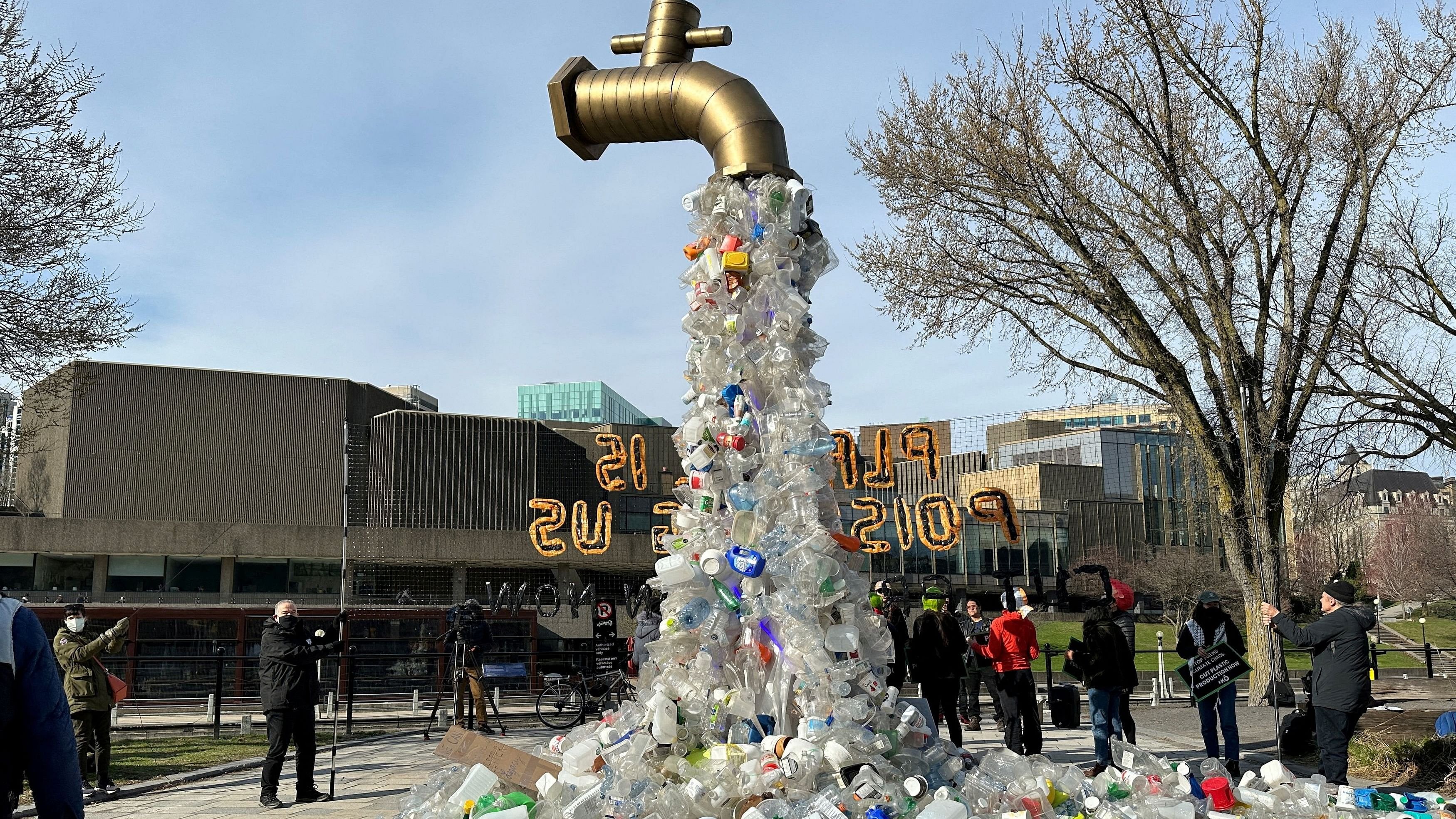
A prop depicting a water tap with cascading plastic bottles is displayed by activists near the Shaw Centre venue of penultimate negotiations for the first-ever global plastics treaty, in Ottawa, Ontario, Canada.
Credit: Reuters Photo
There was not much progress in the negotiations over a global plastics treaty which concluded in Ottawa last week, and there is widespread disappointment over the outcome. Representatives of 192 countries deliberated for about a week to reach an agreement to “end plastic pollution” but even an extended session running into late night on the last day did not produce a result. The Ottawa meet was the fourth round of talks since countries resolved in 2022 to draw up a timeline for elimination of plastics use and to halt their production. An Intergovernmental Negotiating Committee (INC), consisting of government representatives, was formed for the purpose. While most countries agreed on the need to tackle plastic pollution there was no agreement on imposing production limits. Plastics are petroleum byproducts. Countries which have a developed petrochemical industry and the industry groups resisted the idea of production limits and their view has prevailed for now.
The view promoted by them was for the proposed treaty to focus on recycling of plastics and waste management. Many rich and developed countries have a thriving industry which manufactures and distributes plastics. Plastics of different kinds have wide uses and affordable alternatives are not available. These were the main reasons for the negotiations to get stuck. It was decided at the conference that there is a need for more detailed assessments of emissions, production, waste management and other factors. India opposed restrictions on production of primary plastic polymers on the ground that production cuts were beyond the scope of UNEA [United Nations Environment Assembly] resolutions. India also called for a transparent and evidence-based decision-making process in the conclusion of a treaty.
It is well-known that plastics are not biodegradable and pose a serious threat to the environment and public health. Even the process of plastic manufacturing adds to global warming with emission of greenhouse gases. The attempts so far to reduce the use of plastics, and to recycle them, have not found much success till now. It is estimated that only 10% of the world’s accumulated plastic waste has so far been recycled. At the same time, production is increasing every year. So there is the need for an early agreement which will control production of plastics. Inger Andersen, Director of the UN Environment Programme (UNEP), has said that there was some progress at the Ottawa conference and the path is clear for a deal in Busan in South Korea, where the next meeting will be held later this year. But she also cautioned that only a few months are left to meet the deadline set in 2022 to frame a treaty.